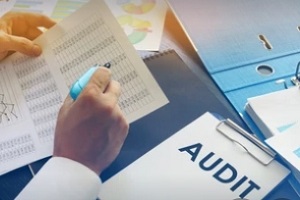 The Defense Contract Audit Agency (DCAA) operates directly under the United States Office of the Secretary of Defense and its acting CFO. It serves to provide financial and audit services to the Department of Defense (DoD) and United States federal establishments that oversee acquisitions.
The Defense Contract Audit Agency (DCAA) operates directly under the United States Office of the Secretary of Defense and its acting CFO. It serves to provide financial and audit services to the Department of Defense (DoD) and United States federal establishments that oversee acquisitions.
The primary purpose of the DCAA is to oversee government contractors to obtain the maximum benefit from investments made by DoD and federal institutes on government contracts. DCAA audits perform financial evaluations of the proposed financial plans and budgets of the contractors.
The audits determine whether the contract is reasonable to allocate or not. This benefits the American taxpayers and the betterment of those serving in the armed forces.
What Is DCAA Compliance?
The organization’s software, system, and procedures must follow DCAA guidelines. Although there is no formal certification of DCAA compliance or approvals, FAR (Federal Acquisition Regulations), CAS (Cost Accounting Standards) or other government accounting standards must be followed.
DCAA Approved Accounting Systems
 DCAA does not officially declare any accounting system or software to be DCAA compliant. Instead, they conduct audits to ensure that the accounting system is functioning according to the government regulations and also to see how contract money is being spent.
DCAA does not officially declare any accounting system or software to be DCAA compliant. Instead, they conduct audits to ensure that the accounting system is functioning according to the government regulations and also to see how contract money is being spent.
Is Your Business DCAA Complaint? Don’t Take The Risk.
How An Accounting System Becomes DCAA Approved
Obtaining DCAA approval depends on many factors, but the essential elements are transparency and attention to detail. So what does it take to approve your accounting system from DCAA? Let’s find out.
Exclude Direct Cost From Indirect Cost
For your accounting system to be DCAA audit compliant, you must have a strict implementation of FAR 31.203 and FAR 31.202 requirements.
There should be a clear explanation of direct and indirect costs associated with the contract, and delineate any exceptional situations where there is a change in direct or indirect costs.
Maintain Time-Keeping System
 Timekeeping is crucial for DCAA audits; you can track time either manually or through automated systems. However, either process must operate according to DCAA accounting guidelines; otherwise, your accounting systems will not be DCAA-approved.
Timekeeping is crucial for DCAA audits; you can track time either manually or through automated systems. However, either process must operate according to DCAA accounting guidelines; otherwise, your accounting systems will not be DCAA-approved.
The timekeeping system must record all direct and indirect labor hours. Each time tracking entry is relevant to the DCAA; therefore, you must be careful with all entries you enter, alter or replace. The DCAA preference for time tracking includes:
- Employees and labor must work on the designated hours provided by the contractor
- Timekeeping sheets should be updated, monitored and approved by the supervisors
- In case of any corrections, the system must align with DCAA procedures
- Only authorized personnel should have access to timesheets
- Proper implementation of time entries and training of employees
- Cybersecurity and control access if the contractor uses time tracking
Keep Records Of Unallowable Cost
DCAA aims to get the maximum output from federal investments. The federal government does not reimburse for costs such as travel expenses, alcohol and parties and therefore closely monitors contract spending for items not allowed.
If these costs are incurred by any contractor, they must record these costs in separate expense sheets as per requirements in FAR 31.201-6.
Cost Tracking By Contract Line Item (CLINs)
 Cost tracking by contract line items is a process of treating CLINs as projects; in this way, the contractor can charge indirect costs to contract line items and direct costs to line items. For contract line items, the contractor should have a secure policy of tracking the projects and accounting procedures.
Cost tracking by contract line items is a process of treating CLINs as projects; in this way, the contractor can charge indirect costs to contract line items and direct costs to line items. For contract line items, the contractor should have a secure policy of tracking the projects and accounting procedures.
Calculate Contract Cost by Task, Project, Objective, And Contracts
Your cost system must be aligned and fully integrated with your accounting system. Calculate the cost of all elements including labor and direct material. For each project, calculate these costs separately to keep transparency.
This requires a cost ledger in which you can assign direct costs to projects. DCAA requires a formal report that includes all direct costs according to cost elements.
Provide Historical Accounting Data
DCAA can require access to the historical accounting data of the contractor. This data will also demonstrate whether or not the contractor is capable of managing large-scale contracts.
If you can ensure DCAA compliance, you may be considered reliable for your cost data reliability requirement for follow-on procurements.
The above are just a few DCAA compliance processes of many, but as a contractor, your company must align according to all of them.
Get The Best Consultation For DCAA Audits
 You can have numerous advantages if you are a government contractor and want to pass the DCAA audit on the first attempt. But, contractors need guidance to pass DCAA audits; failing to comply with DCAA compliance can have unpleasant results for contractors.
You can have numerous advantages if you are a government contractor and want to pass the DCAA audit on the first attempt. But, contractors need guidance to pass DCAA audits; failing to comply with DCAA compliance can have unpleasant results for contractors.
A certified public accountant (CPA) can help you understand DCAA audits. CPAs specialize in assisting contractors in approving their accounting system from DCAA — therefore, it is advised to work with a CPA firm that understands DCAA compliance.
